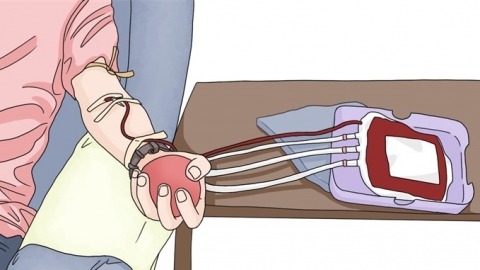How long after donating blood can I take a shower?
Generally, it is recommended to wait 1 to 2 days before taking a shower after donating blood. The detailed explanation is as follows:
If the donor remains in good physical condition during the blood donation process, without experiencing symptoms such as dizziness or fatigue, and the amount of donated blood is relatively small, such as 200 mL, and the puncture site heals well without bleeding or abnormal symptoms like redness and swelling, then usually around one day after donation, the skin at the needle site will have mostly healed. At this point, taking a shower generally will not cause adverse effects on the puncture area. However, it is important to avoid vigorously rubbing the puncture site while showering to prevent damaging the newly healed tissue.

When the donor gives a relatively larger volume of blood, such as 400 mL, or if the donor has a generally weak physical condition and experiences noticeable fatigue or dizziness after donation, the body will require more time to recover. Additionally, if there is bleeding or mild redness and swelling at the puncture site after donation, indicating a slower healing process, it is necessary to wait longer—up to two days—before showering. This is to prevent bacteria in the water from causing infection and inflammation at the puncture site. During these two days, extra care should be taken to protect the puncture site and keep it clean and dry.
After donating blood, it is important to get plenty of rest and avoid strenuous exercise or heavy physical labor, allowing the body sufficient time to recover. Nutritionally, it is advisable to eat foods rich in protein, iron, vitamins, and other nutrients, such as lean meat, eggs, milk, and spinach, to promote blood regeneration. Close attention should also be paid to the condition of the puncture site; if abnormal symptoms such as increased redness, pain, or fever occur, prompt medical attention should be sought. Additionally, warm water should be used for bathing, avoiding water that is too hot or too cold, and the shower should not be excessively long, to prevent excessive fatigue.







